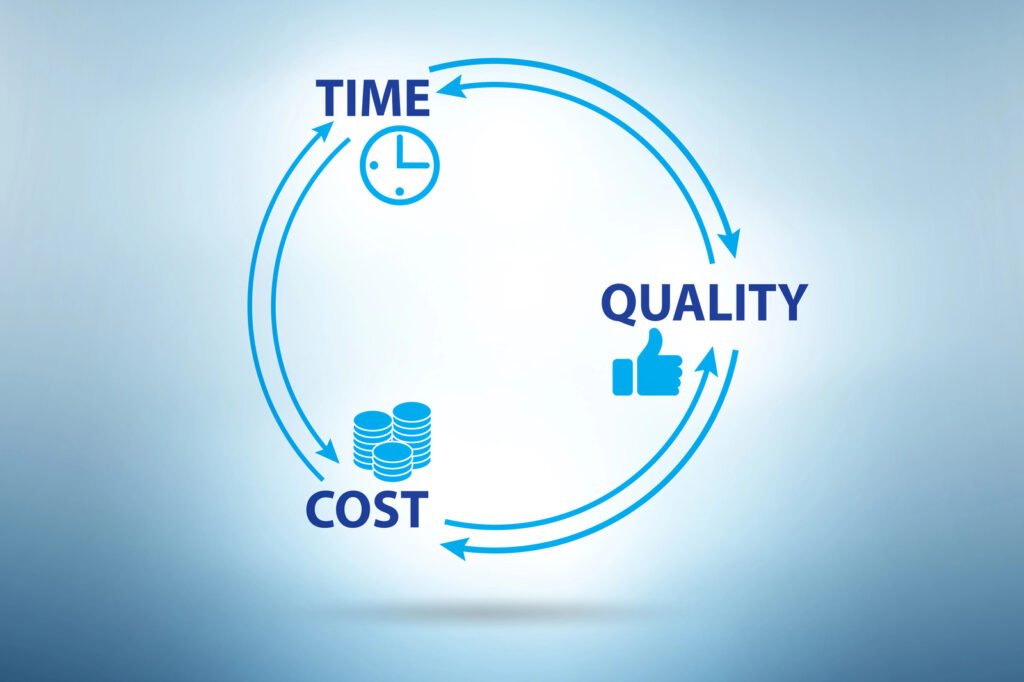In this blog we will explore how integrating AI, small business can thrive and change how they operate and compete in the marketplace. By integrating AI into their workflows, small businesses can take advantage of tools that automate processes, enhance customer experiences, and provide decision-driving insights without breaking the bank.
This blog explores how AI tools can transform small business operations, from automating manual tasks to delivering valuable data insights. By the end, you’ll see how AI can act as a secret weapon for boosting efficiency and growth in your small business.
AI Tools for Small Business

Time is one of the most valuable resources for small business owners, and AI-powered automation is here to save it. Manual tasks such as scheduling, inventory management, and email marketing can consume hours of your day. By implementing AI, small businesses can reduce or eliminate these time-intensive activities.
Examples of AI Automation

- Scheduling Tools
Tools like Calendly use Artificial Intelligence to automate meeting scheduling, allowing customers to book directly based on your availability. These apps eliminate the back-and-forth of finding a mutually convenient time.
- Invoice Management
AI tools such as QuickBooks can generate invoices, track payments, and even remind clients about unpaid bills. This means you can focus on growing your business rather than chasing invoices.
- Email Marketing Automation
Platforms like Mailchimp use AI to analyse email campaign performance and recommend ways to improve your marketing efforts and open rates and engagement.
- Schedule Social Media Posts
AI generated content creation tools like Wordsmith can create social media posts, blog articles, and even press releases in minutes. You can save time on creating engaging content while still maintaining your brand voice.
Generative AI and Human Intelligence
One question that arises with the advancement of AI solutions based tools is whether it will replace human intelligence. While AI technology can certainly assist in AI generated content, its capabilities are limited to what has been programmed by humans.
Human intelligence involves complex tasks such as problem-solving, abstract thinking, and creativity that cannot be replicated by AI tools (at least not yet). Generative AI tools can only work with data and information that have been fed into the system. They do not have the ability to generate original ideas or concepts without human input.
In fact, many experts argue that AI technology can enhance human creativity rather than replace it. By taking over mundane tasks like data entry, marketing campaigns and content generation, it allows humans more time to focus on the more complex and abstract thinking that is essential for creativity.
Enhancing Customer Experience with AI Chatbots

Customer satisfaction is the bedrock of any successful small business. However, providing 24/7 support is often unrealistic for small business owners with limited manpower. This is where AI for small business chatbots step in to fill the gap.
What Can AI Chatbots Do?
AI chatbots can improve customer service, like those built on platforms such as Zendesk or Intercom, provide instant responses to customer inquiries, no matter the time of day. They can handle common queries like product availability, shipping updates, and return procedures, offering real-time AI solutions.
For instance, clothing boutique owners often struggle to provide round-the-clock customer service. With a chatbot, customers can ask, “What’s the return policy?” or “Do you have this dress in a size 12?” and get immediate answers.
Benefits of Chatbots
- Consistency: Chatbots never fatigue, ensuring consistent responses.
- Cost Efficiency: You save on hiring additional support.
- Personalisation: Advanced chatbots offer tailored recommendations by analysing a customer’s shopping behaviour and history.
An added bonus? Human agents are freed from repetitive tasks to focus on higher-value interactions and complex tasks.
Data Analysis and Insights

Artificial intelligence doesn’t just save time; it also makes your decisions smarter. Many small businesses struggle to make data-driven choices because they lack time or tools to analyse large volumes of data. AI changes the game by doing the heavy lifting.
How Does AI Help with Data?
AI tools such as Tableau or Zoho Analytics crunch numbers, track trends, and present visual insights. For small businesses, this means you can better understand sales trends, customer data preferences, and inventory needs without hiring a full-time data analyst.
Real-Life Example AI in Small Business
With AI for a small business such as a small café, you could identify that your iced lattes sell four times better on Fridays. Armed with this insight, you could run a Friday iced latte promotion, boosting sales further.
Analytics tools also help identify underperforming products or services, so you can make informed decisions about what to improve, market differently, or discontinue.
The beauty of AI for data entry analysis is its ability to help you act on what truly matters to your bottom line.
Affordable AI Tools for Small Businesses
A common misconception is that AI is only accessible to large corporations with unlimited budgets. However, many affordable and user-friendly AI solutions are built specifically for small businesses.
Recommended AI Tools
Here’s a breakdown of some must-have tools for small businesses transitioning to AI-powered operations:
- Customer Relationship Management (CRM)
Try HubSpot for managing customer interactions and automating sales and marketing processes. Their free plan is perfect for getting started.
- Social Media Automation
Platforms like Hootsuite use AI to schedule posts, recommend optimal posting times, and provide analytics for each campaign.
- Inventory Management
AI-powered tools like TradeGecko keep inventory levels optimised by forecasting demand and sending alerts when stock is low.
- Payroll
Services like Gusto use AI to streamline payroll, tax filing, and employee onboarding, saving both time and effort.
These tools don’t just make running your business easier; they also make it possible to compete with larger players by narrowing the gap in efficiency and capability.
Why Small Businesses Should Start Using AI

Small businesses often face unique challenges, such as limited resources and stiff competition. By integrating Artificial Intelligence, you gain a competitive advantage by increasing productivity, making smarter decisions, and providing an exceptional customer experience.
Ai can save a lot of time and is a cost effective way of giving you helpful advice to help you make the right decisions for your company.
More importantly, as AI technology evolves, those who adopt it early can capitalise on its benefits before it becomes industry standard.